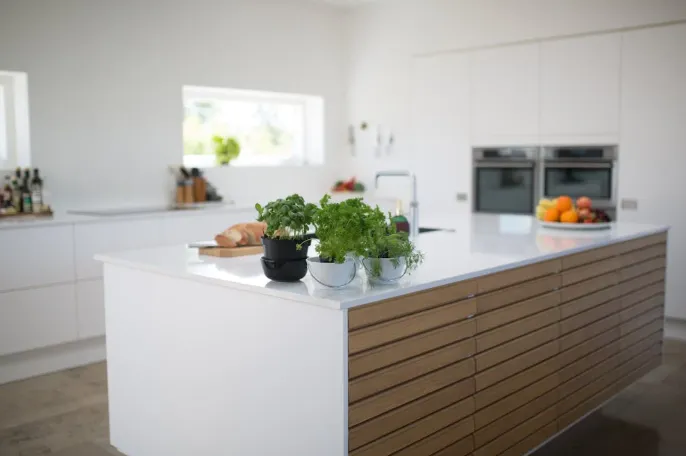The average household kitchen contains hundreds of items, and most of them rarely see any use. From gadgets that seemed useful at the time to spices that expired years ago, kitchens tend to collect clutter faster than almost any other room. This becomes a real problem when moving to a new home. Packing up a space filled with duplicates, broken items, or things you never use can feel overwhelming.
Whether you’re moving across town or leaving Nashville, the kitchen often takes the most time and energy to sort through. Unlike other rooms, you’re dealing with a mix of fragile glassware, heavy appliances, and food that won’t always travel well. This is why decluttering before you start packing is so important. By carefully deciding what to keep and what to toss, you can save time, reduce stress, and make the moving process far easier. In this article, you’ll find practical steps to help you clear out your kitchen without second-guessing every decision.
Why Start With the Kitchen First
Many people put off packing the kitchen because it feels like the hardest job. But there’s a strong case for making it your starting point. The kitchen has more categories of items than any other room. You’ve got pantry staples, cookware, dishes, utensils, cleaning supplies, and appliances. Each one requires different decisions. If you leave it until the last minute, you’ll end up rushing and packing things you don’t really need.
By starting with the kitchen, you give yourself time to be selective. You also cut down on the number of boxes you’ll have to move. This step makes the rest of your packing feel less stressful because you’ve already handled the toughest space. If you’re working with a professional Nashville moving company, having the kitchen sorted early allows them to pack it more efficiently and handle fragile items with extra care.
Check Expiration Dates Before Anything Else
The simplest way to begin is by clearing out expired food. Go through your pantry, fridge, and freezer with a critical eye. Spices that have lost their flavor, sauces that are years past their date, and canned food that’s been sitting untouched for too long all need to go. These items take up space and are not worth the effort of boxing and moving.
As you check dates, separate items into three groups: expired, still fresh, and unopened but unwanted. Anything expired should go straight into the trash. Items that are sealed and in good condition can be donated to a food bank. Keep only the food that you know you will actually use in the near future.
Sort Through Small Appliances You Rarely Use
Small appliances are often the biggest space hogs in a kitchen. Bread makers, slow cookers, air fryers, and mixers all seem useful when first bought, but many end up gathering dust. When deciding what to keep, ask yourself how often you’ve used the appliance in the last six months. If the answer is “not at all,” it’s time to let it go.
Appliances in good working order can be donated or sold. This not only lightens your load but also helps someone else who may put it to better use. Keep only the ones that are part of your daily or weekly routine. You’ll be glad later when you have fewer heavy boxes to move.
Streamline Your Collection of Pots and Pans
Cookware takes up a surprising amount of room in moving boxes. Most households own far more than they need. Take a close look at your collection of pots and pans. Do you really need three frying pans in the same size? How often do you use that oversized stockpot?
Keep versatile pieces that you reach for often, such as a medium-sized saucepan, a skillet, and a reliable baking sheet. Donate duplicates or specialty items you don’t use anymore. By slimming down your cookware, you’ll make packing easier and create more space in your new kitchen for the items you actually use.
Rethink the Dishware and Glassware You Own
Dishes and glasses can be some of the most challenging items to pack because they’re fragile. This makes it all the more important to declutter before moving. Start by checking for chips, cracks, or incomplete sets. There’s no need to take damaged or mismatched pieces with you.
Decide how many plates, bowls, and glasses your household really needs on a daily basis. Keep a few extra for guests, but not more than you’ll reasonably use. Special-occasion dishware, like a nice set of wine glasses or serving platters, is worth holding on to if you actually use it. Anything beyond that can be donated or recycled. Reducing the number of breakables you bring will save both time and stress when packing and unpacking.
Handle Cleaning Supplies with Safety in Mind
Cleaning supplies are often overlooked until the last minute, but they require special attention. Many moving companies will not transport open or hazardous liquids, including bleach, ammonia, or other strong cleaners. Packing them can also be risky, as leaks may damage other belongings.
The best approach is to use up as much as you can before moving day. If you still have unopened products, check whether they are safe to transport and seal them in plastic bags or bins to prevent spills. For partially used bottles, consider giving them to neighbors or friends rather than trying to move them. Keep only a small set of essentials—like dish soap, a sponge, and disinfecting wipes—for immediate use in your new home. This way, you won’t waste space or risk accidents during the move.
Pack an Essentials Box for the First Few Days
When the rest of your kitchen is packed up, you’ll still need a few items to get by in the first days at your new home. That’s where an essentials box comes in. This box should include plates, cups, utensils, a cutting board, one or two pans, dish soap, and paper towels. Think of it as a starter kit that saves you from digging through boxes when you’re tired from moving.
Don’t forget coffee, tea, or other morning essentials that keep your routine on track. Pack snacks and simple meals that don’t require much cooking. Label the box clearly and make sure it travels with you instead of in the moving truck. Having these items within reach will make your first days in the new kitchen far more comfortable.
Decluttering your kitchen before moving may feel like a big task, but it pays off in every way. By taking the time to sort through food, cookware, appliances, and supplies, you’ll cut down on what you need to pack and move. This makes your boxes lighter, your moving costs lower, and your new kitchen easier to set up.
Moving gives you the chance to reset your kitchen. By bringing only what fits your lifestyle, you’ll start fresh in a home that feels more organized and less cluttered. With a little effort before the move, you’ll enjoy a smoother, less stressful transition.













